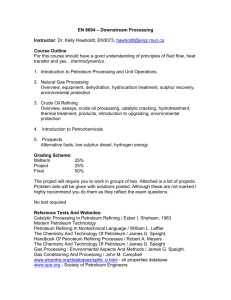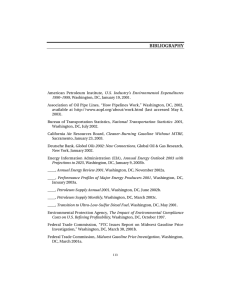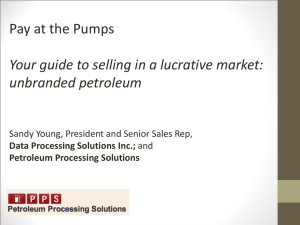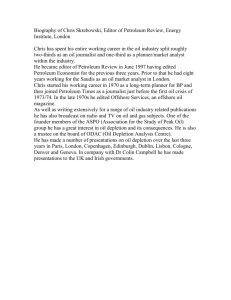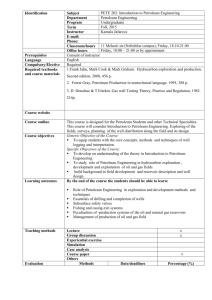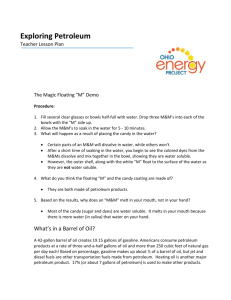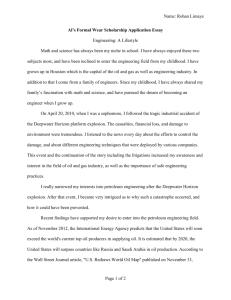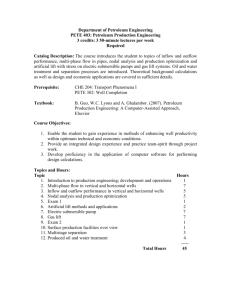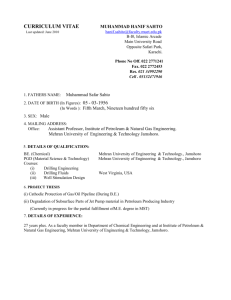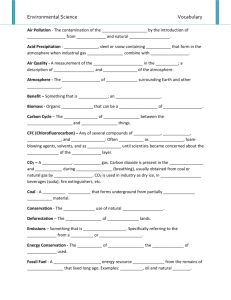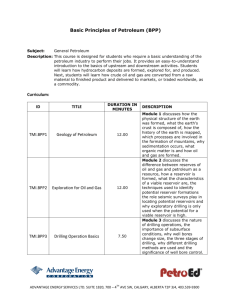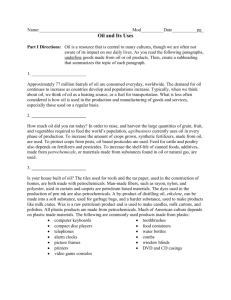Course Outline
advertisement
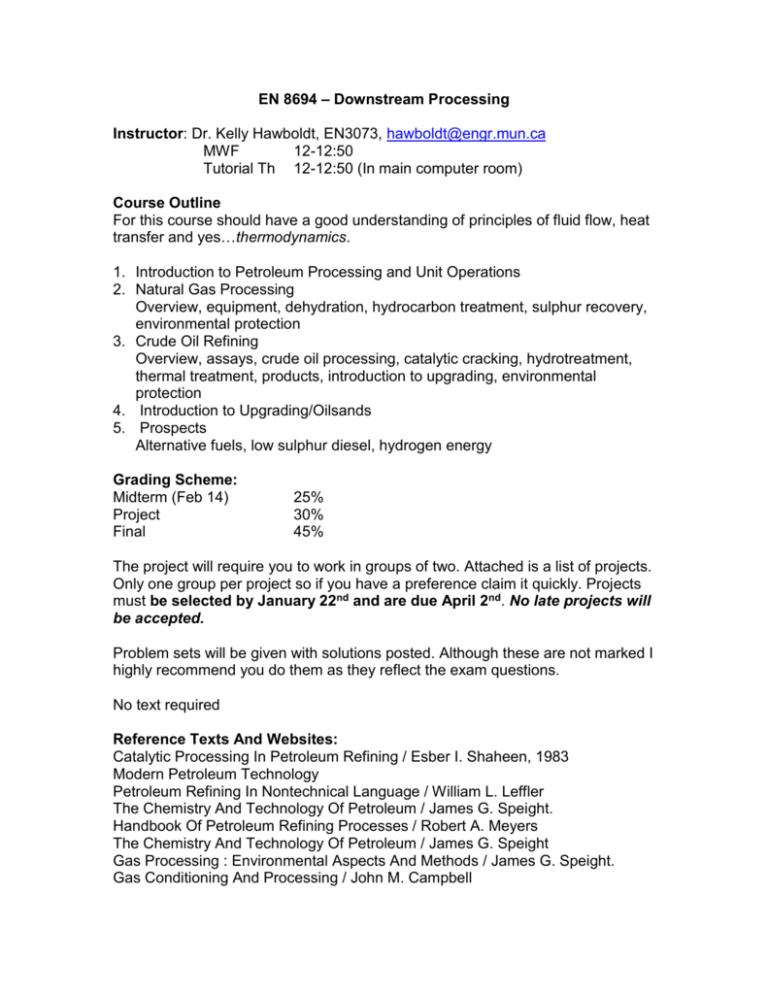
EN 8694 – Downstream Processing Instructor: Dr. Kelly Hawboldt, EN3073, hawboldt@engr.mun.ca MWF 12-12:50 Tutorial Th 12-12:50 (In main computer room) Course Outline For this course should have a good understanding of principles of fluid flow, heat transfer and yes…thermodynamics. 1. Introduction to Petroleum Processing and Unit Operations 2. Natural Gas Processing Overview, equipment, dehydration, hydrocarbon treatment, sulphur recovery, environmental protection 3. Crude Oil Refining Overview, assays, crude oil processing, catalytic cracking, hydrotreatment, thermal treatment, products, introduction to upgrading, environmental protection 4. Introduction to Upgrading/Oilsands 5. Prospects Alternative fuels, low sulphur diesel, hydrogen energy Grading Scheme: Midterm (Feb 14) Project Final 25% 30% 45% The project will require you to work in groups of two. Attached is a list of projects. Only one group per project so if you have a preference claim it quickly. Projects must be selected by January 22nd and are due April 2nd. No late projects will be accepted. Problem sets will be given with solutions posted. Although these are not marked I highly recommend you do them as they reflect the exam questions. No text required Reference Texts And Websites: Catalytic Processing In Petroleum Refining / Esber I. Shaheen, 1983 Modern Petroleum Technology Petroleum Refining In Nontechnical Language / William L. Leffler The Chemistry And Technology Of Petroleum / James G. Speight. Handbook Of Petroleum Refining Processes / Robert A. Meyers The Chemistry And Technology Of Petroleum / James G. Speight Gas Processing : Environmental Aspects And Methods / James G. Speight. Gas Conditioning And Processing / John M. Campbell www.etcentre.org/databases/spills_e.html - oil properties database www.spe.org - Society of Petroleum Engineers gpsa.gasprocessors.com – Gas Processor www.capp.ca - Canadian Association of Petroleum Producers www.energy.gov - U.S. Department of Energy www.neb.gc.ca/index_e.htm - National Energy Board (Canada) Projects All projects involve a critical review and future of a petroleum process. The choice of processes is outlined below: 1. Removal of low levels of hydrogen sulphide from natural gas (e.g. Sable Island) 2. Sulphur recovery 3. Separation of natural gas liquids (NGLs) from natural gas 4. Mercury removal from natural gas 5. Large scale dehydration of natural gas 6. Upgrading of bitumen from oilsands 7. Catalytic cracking 8. Hydrocracking 9. Deep removal of sulphur compounds from diesel and gasoline 10. Delayed vs. fluidized coking 11. Hydrogen production technologies in refineries 12. Hydrogen recovery (different technologies) 13. Energy recovery in refineries 14. Treatment of wastewater in refineries/gas plants The report should be between 10-20 single-spaced pages and have the following format: 1) Abstract 2) Introduction Introduction to the process and its significance. 3) Scientific Discussion A review of the literature available on the process with recent references and also; o Clear explanation of the process, feedstock properties, process variables, and product specs o Important design parameters o Historical reason for the development of the process o Recent trends and challenges in process development and future perspective 4) Conclusions 5) References References should be cited properly in the body of the report Plagiarism in any form will not be tolerated, in fact any plagiarism will result in 50% off the top. To avoid plagiarism see this website: www.utoronto.ca/writing/plagsep.html
